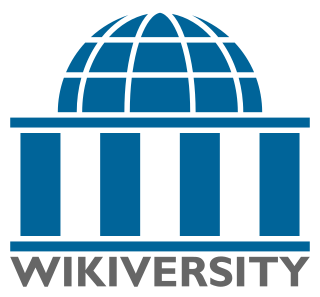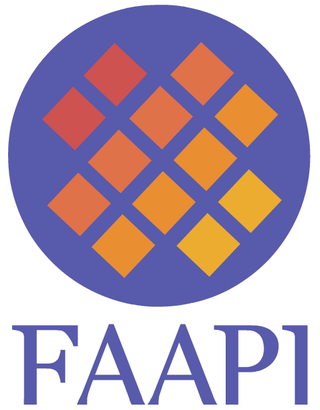The following outline is provided as an overview of and topical guide to education:

Science education is the teaching and learning of science to school children, college students, or adults within the general public. The field of science education includes work in science content, science process, some social science, and some teaching pedagogy. The standards for science education provide expectations for the development of understanding for students through the entire course of their K-12 education and beyond. The traditional subjects included in the standards are physical, life, earth, space, and human sciences.
Computer-assisted language learning (CALL), British, or Computer-Aided Instruction (CAI)/Computer-Aided Language Instruction (CALI), American, is briefly defined in a seminal work by Levy as "the search for and study of applications of the computer in language teaching and learning". CALL embraces a wide range of information and communications technology applications and approaches to teaching and learning foreign languages, from the "traditional" drill-and-practice programs that characterised CALL in the 1960s and 1970s to more recent manifestations of CALL, e.g. as used in a virtual learning environment and Web-based distance learning. It also extends to the use of corpora and concordancers, interactive whiteboards, computer-mediated communication (CMC), language learning in virtual worlds, and mobile-assisted language learning (MALL).
The Council for British Archaeology (CBA) is an educational charity established in 1944 in the UK. It works to involve people in archaeology and to promote the appreciation and care of the historic environment for the benefit of present and future generations. It achieves this by promoting research, conservation and education, and by widening access to archaeology through effective communication and participation.

Tes, formerly known as the Times Educational Supplement, is a weekly UK publication aimed at education professionals. It was first published in 1910 as a pull-out supplement in The Times newspaper. Such was its popularity that in 1914, the supplement became a separate publication selling for one penny.

The Geographical Association (GA) is an association in the United Kingdom. The organisation aims to improve geographical knowledge of the public through promoting geographical education. It is a registered charity and is independent of state aid.

Visual arts education is the area of learning that is based upon the kind of art that one can see, visual arts—drawing, painting, sculpture, printmaking, and design in jewelry, pottery, weaving, fabrics, etc. and design applied to more practical fields such as commercial graphics and home furnishings. Contemporary topics include photography, video, film, design, and computer art. Art education may focus on students creating art, on learning to criticize or appreciate art, or some combination of the two.
International Association of Teachers of English as a Foreign Language (IATEFL) is an organisation in the field of English language learning and teaching. It is based in Britain and was founded in 1967 as ATEFL, by W. R. (Bill) Lee, who also served as the organisation's first Chairman until 1984.
The National Association for the Education of Young Children (NAEYC) is a large nonprofit association in the United States representing early childhood education teachers, para-educators, center directors, trainers, college educators, families of young children, policy makers, and advocates. NAEYC is focused on improving the well-being of young children, with particular emphasis on the quality of educational and developmental services for children from birth through age 8.
The Historical Association is a membership organisation of historians and scholars founded in 1906 and based in London. Its goals are to support "the study and enjoyment of history at all levels by creating an environment that promotes lifelong learning and provides for the evolving needs of people who share an interest in history." The association's patron is Queen Elizabeth II. The Historical Association was incorporated by royal charter in 2006, its centenary year. Legally it is a charity registered in England. The plan for a national historical association came from a group school teachers. The formation was handled by university academics, especially Charles Firth, Albert Pollard, and Thomas Tout. At first it dealt chiefly with teaching problems. The membership was expanded to include laymen, and the association branched out into activities such as publication and research in local history.

The American Society for Engineering Education (ASEE) is a non-profit member association, founded in 1893, dedicated to promoting and improving engineering and engineering technology education. The purpose of ASEE is the advancement of education in all of its functions which pertain to engineering and allied branches of science and technology, including the processes of teaching and learning, counseling, research, extension services and public relations. ASEE administers the engineering technology honor society Tau Alpha Pi.
The National Council for the Social Studies (NCSS) is a U.S.-based association devoted to supporting social studies education. It is affiliated with various regional or state level social studies associations, including: the Middle States Council for the Social Studies, the Washington State Council for the Social Studies, the New York City UFT Association for the Teaching of Social Studies, the Michigan Council for the Social Studies, Massachusetts Council for the Social Studies, and Virginia Council for the Social Studies. They publish several journals; their flagship publication being a peer-reviewed journal titled Social Education which, according to their website, aims to strike "a balance of theoretical content and practical teaching ideas." They sponsor the high school honor society Rho Kappa.

Wikiversity is a Wikimedia Foundation project that supports learning communities, their learning materials, and resulting activities. It differs from Wikipedia in that it offers tutorials and other materials for the fostering of learning, rather than an encyclopedia; like Wikipedia, it is available in many languages.
Teachinghistory.org, also known as the National History Education Clearinghouse (NHEC), is a website that provides educational resources for the study of U.S. history.
The American Association of Teachers of Spanish and Portuguese is a language-specific professional association in the United States that was founded on December 29, 1917, in New York City as the American Association of Teachers of Spanish. The name was changed to the present one when Portuguese was added to the association's mission in 1944.

Evidence-based education (EBE) is the principle that education practices should be based on the best available scientific evidence, rather than tradition, personal judgement, or other influences. Evidence-based education is related to evidence-based teaching, evidence-based learning, and school effectiveness research. For example, research has shown that spaced repetition "leads to more robust memory formation than does massed training, which involves short or no intervals".
School teachers are commonly the instigators of bullying within a school environment, and are often the subject of bullying themselves.
TESOL Quarterly is a quarterly peer-reviewed academic journal published by Wiley-Blackwell on behalf of TESOL International Association. It covers English language teaching and learning, standard English as a second dialect, including articles on the psychology and sociology of language learning and teaching, professional preparation, curriculum development, and testing and evaluation. The editors-in-chief are Charlene Polio and Peter De Costa, both at Michigan State University. TESOL also publishes TESOL Journal.
The Japan Association for Language Teaching (JALT), or 特定非営利活動法人全国語学教育学会 in Japanese, is a non-profit professional organization for foreign language teachers in Japan. Japan's "largest convocation of language educators", JALT has 2,800 members, many of whom are non-Japanese who have settled in Japan. Each member may belong to a local chapter, and has the option of also belonging to Special Interest Groups (SIGs). JALT holds an annual conference, and has done so since 1975. JALT produces a bimonthly magazine, a semiannual journal, and an annual conference proceedings.

The Argentine Federation of Associations of Teachers of English (FAAPI) is a registered non-profit organization founded in 1971. Through 27 regional associations of teachers of English in Argentina, FAAPI affiliates all certified Teachers of English as a Foreign Language holding degrees granted by universities and other teachers’ training colleges recognized by the National Ministry of Culture and Education. FAAPI’s goal is to encourage continuous professional development among its members. FAAPI is also an associate member of IATEFL.








